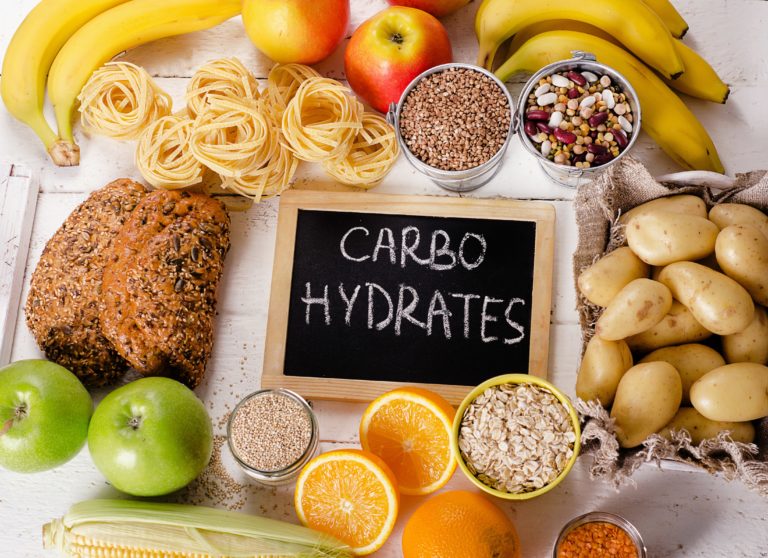
Science, Carbs and Cardio - Be aware of the mainstream’s unholy love of the carbohydrate.
How to arrive at a predetermined conclusion
This past Sunday I read an article in the New York Times Health Section entitled, “The best foods for athletes.” Well okay, I’m an athlete, what foods are best for me to eat? After reading the entire piece I thought of a better title, “The best foods for those that insist on eating before jogging or riding the exercise bike – and what to eat or drink to replenish after you finish jogging or riding the exercise bike.”
The article was yet another carb-justification diatribe. Those that exercise (using their definition of exercise) are encouraged to eat carbs before and after training. It seems science and the mainstream health experts have a love affair with carbohydrates and will use any narrow premise to arrive at the predetermined conclusion that carbs are supreme and saturated fat is satanic.
The New York Times article was built around a study in Science magazine called Swifter, Higher, Stronger; what’s on the menu? Oddly, Swifter (sprinting) and being able to leap Higher requires strength, not endurance. Stronger is not improved by cardio. Yet, the exercise benchmark selected was steady-state cardio, with only passing reference to any type of strength training.
Of the five bio-motor attributes (strength, speed, endurance, agility and flexibility) strength is King, first amongst equals. Why? There is no speed without strength. Strength bleeds over into the other bio-motor attributes. The way cardio exercise is featured and spotlighted in nearly every scientific study would lead the uninformed to think endurance was the King of bio-motor attributes.
If you erroneously think endurance is the King of bio-motor attributes, then naturally you select some steady-state activity as your exercise benchmark. To build this castle made of sand even higher, what nutrients would a hard-charging endurance athlete require? Why carbs sir, lots and lots of carbs – and without too much bothersome differentiation.
I could also have titled the Times article, Long distance running and steady-state cardio; what’s on the menu? Apparently, lots and lots of carbs are on the endurance menu. The article sets up the straw man premise that somehow carbohydrates trump all other nutrients and somehow the only exercise worthy of study is steady-state cardio.
Much examination was given to the idea of using nutrition (carbs) as a preparation tool heading into a steady-state training session (or aerobic competition) and again as a post-workout recovery-accelerator (more carbs coming off the training session or event.) In both those instances, fore and aft, the case is made that carb consumption is approved, recommended and beneficial.
I have a better idea: suck it up, skip the pre-workout fueling and post-workout refueling. Without the additional calories, the scant few actually burned in the cardio session might make a dent in reducing body fat. The caloric cost of exercise is vastly overrated. An average size American engaging in a 30-minute cardio session, regardless the mode, device or tool, will burn 200-500 calories, less than one Big Mac.
The idea that the average American riding a stationary bike for 30-minutes at the YMCA is actually working hard enough to deserve a pre-workout carb load and a post-work replenishment meal or shake is ludicrous. The dude that texts while pedaling is hardly in dire need of pre-workout carbs to boost his energy. Nor is he deserving of post-workout recovery supplementation to accelerate his recovery – from what? This guy is already 25-pounds overweight and the NY Times is suggesting he load up on insulin-spiking fat-producing carbs before and after “training.”
While serious carb replenishment might be a good idea for a real athlete engaging in a body-shattering training session, there aren’t too many real athletes engaging in body-shattering training sessions. Mostly you have normal people chugging away in earnest on cardio machines at the local Y or health club. Skinny-fat people, diligently showing up to pedal or jog. They are eternally mystified as to why their body never changes; they ponder this as they guzzle their 200-calorie post-workout carb “replenishment shake” that just cancelled out any exercise-induced caloric deficit they might have made.
A similar phenomenon: a few years back, the dire warnings were all about the need to stay hydrated during exercise. Top ultra-endurance athletes were keeling over so the fitness press was loaded with articles on the need to stay hydrated. The guy using the Nordic track in his garage for 20-minutes is in no danger.
To this day in my neighborhood I have well-heeled women walking in the name of fitness and exercise. These dedicated fitness adherents walk with their girlfriends (in nice weather only) sporting $500 track suits, wearing jewelry and shod in expensive Nike shoes. They walk next to one another and talk, talk, talk. Each exercise walker carries a water bottle so they can stay “hydrated,” despite the fact that no one ever sweats.
While carbs might be the nutrient of choice on certain occasions, like before a real athlete runs a half marathon, or in the immediate aftermath of a savage, sweat-drenched, lung-searing session. This level of commitment and effort are rare. Does the average American that engages in some sort of steady-state cardio, say riding the stationary bike or jogging on the treadmill for 30-minutes or 40-minutes three to four times weekly really need to load up on insulin-spiking carbs before and then again after a training session?
The way science talks about the “energy boosting benefits” of carbs, you’d think drinking a pint of orange juice would be akin to snorting four rails of crystal meth. Does eating a bunch of fruit or drinking no-fat soy milk create an afterburner effect on performance? Hardly. There is not one shred of empirical evidence to support the contention that carbs elevate energy to any significant degree.
The post-cardio workout carb replenishment meal or drink is supposed to replace glycogen burned during a workout. The post-workout carb-rich smoothie recovery shake prevents the Gazelle user, fresh off a 30-minute session, from keeling over. Again, real athletes that really sweat and bust ass, might rate a replenishment shake.
Carb over-indulgence is the express-train to Fat-Dom. The “best food for athletes” article makes little if any differentiation between carb types. There is a big difference between a cup of insulin-dampening broccoli and a cup of insulin-spiking orange juice. Other than fibrous carbs, i.e. broccoli, spinach, salad greens, kale, onions, green beans, asparagus, etc. – all other carbs, regardless the type or kind, are undigested sugar. Carb consumption needs be nuanced, particularly if you are seeking to reduce body fat.
Not all carbs are bad but some of them are very bad, the worst. In the carbohydrate hierarchy, fiber is numero uno; natural starch carbs are next. Bad carbs include all man-made carbs, industrial foods, pastry, bread, baked goods, sweets, candies, insulin-spiking low-fat/no-fat dairy and frozen foods, chips, soda and sugar. The enemy is not the calorie, the enemy is insulin and it is created in tidal waves by refined and manmade carb “foods.” Wise up and get woke about carbs.
About the Author
As an athlete Marty Gallagher is a national and world champion in Olympic lifting and powerlifting. He was a world champion team coach in 1991 and coached Black's Gym to five national team titles. He's also coached some of the strongest men on the planet including Kirk Karwoski when he completed his world record 1,003 lb. squat. Today he teaches the US Secret Service and Tier 1 Spec Ops on how to maximize their strength in minimal time. As a writer since 1978 he’s written for Powerlifting USA, Milo, Flex Magazine, Muscle & Fitness, Prime Fitness, Washington Post, Dragon Door and now IRON COMPANY. He’s also the author of numerous books including Purposeful Primitive, Strong Medicine, Ed Coan’s book “Coan, The Man, the Myth, the Method" and numerous others. Read the Marty Gallagher biography here.

